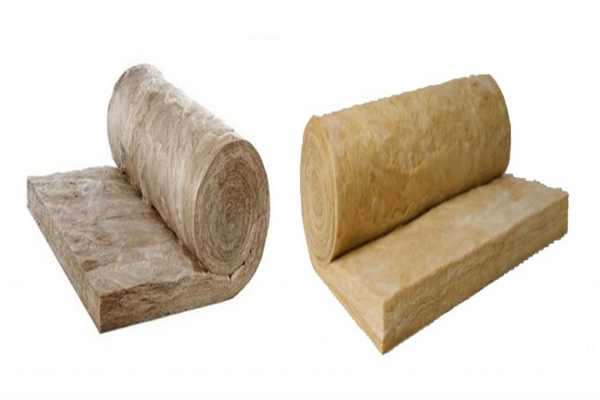E-mail: marketing@hbhuamei.com
The choice between Rockwool (mineral wool) and glass wool insulation depends on various factors, including insulation requirements, budget, environmental considerations, and application-specific needs. Both materials offer excellent thermal and acoustic insulation properties, but they have distinct characteristics that may make one more suitable than the other in certain situations.

Both rock wool and glass wool provide effective thermal insulation, helping to maintain indoor temperatures and reduce heating and cooling costs.
However, they differ in their thermal resistance, which is usually measured in R-value.
Rock Wool: Rock wool typically has a higher R-value per inch than glass wool, which means it provides better insulation at the same thickness. This makes rock wool ideal for applications where space is limited and maximum insulation is needed.
Glass wool: Although glass wool has a slightly lower R-value, it still provides good insulation. It is suitable for standard insulation applications such as walls, lofts and floors. However, for areas where superior insulation is required, rock wool may be a better choice.
Rock wool generally has superior fire resistance compared to glass wool. Mineral wool is made from natural stone fibers, which are non-combustible and can withstand extremely high temperatures without melting or emitting harmful gases.
Both materials offer excellent acoustic insulation properties, reducing noise transmission between rooms and floors. However, Rockwool is often preferred in applications where soundproofing is a primary concern due to its denser composition.
Rock wool has better moisture resistance compared to glass wool. Mineral wool can repel water and moisture, making it suitable for areas prone to high humidity or moisture exposure, such as basements and bathrooms.
Both Rockwool and glass wool are considered environmentally friendly insulation options. They are typically made from recycled materials and can be recycled at the end of their lifespan. However, some manufacturing processes may involve high energy consumption and emissions, so it's essential to consider the environmental footprint of the specific product and manufacturer.
In general, glass wool insulation tends to be more cost-effective compared to Rockwool. Glass wool products are often cheaper to manufacture and purchase, making them a popular choice for budget-conscious projects.
Ultimately, the choice between Rockwool and glass wool insulation depends on the specific requirements of the project, including thermal performance, fire resistance, acoustic properties, moisture resistance, environmental considerations, and budget constraints. It's essential to evaluate the pros and cons of each material and select the one that best meets the needs of the application while considering long-term performance and sustainability goals. Consulting with insulation professionals and considering product specifications can help make an informed decision.
Copyright © Huamei Energy-saving Technology Group Co., Ltd. All Rights Reserved | Sitemap | Privacy Policy
Insulation solutions LIST: Insulation solutions LIST